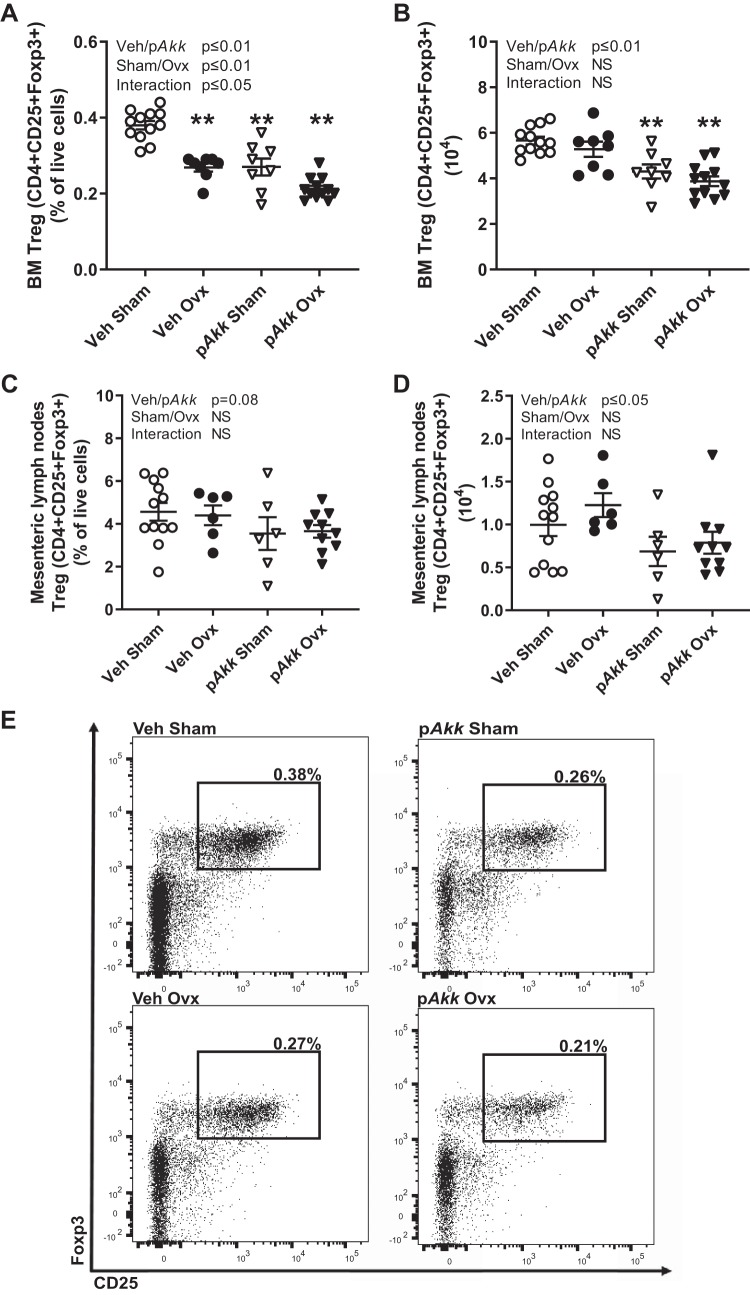Fig. 7.
Treatment with pasteurized Akkermansia muciniphila decreases the frequency and number of regulatory T cells in bone marrow and number of regulatory T cells in mesenteric lymph nodes. Twelve-week-old female mice treated with either vehicle (Veh) or pasteurized Akkermansia muciniphila (pAkk) by daily oral gavage during 28 days, starting 3 days before ovariectomy (Ovx) or sham surgery. At the end of the study bone marrow (BM) cells from dissected femur and cells from mesenteric lymph nodes were stained with antibodies recognizing CD4, Foxp3, and CD25. Values represent the frequency of regulatory T cells (Treg, CD4+CD25+Foxp3+) of gated live cells for BM (A) and mesenteric lymph nodes (C) and absolute number of Treg cells in BM (B) and mesenteric lymph nodes (D). Representative images of Treg populations in bone marrow from flow cytometry analyses (E). Values are given as means ± SE (BM: n = 8–12; mesenteric lymph nodes: n = 6–12). The overall effect of treatment (Veh/pAkk) and surgical procedure (Sham/Ovx) and their interaction were calculated using two-way ANOVA followed by Dunnett’s post hoc test to correct for multiple comparisons between all groups vs. vehicle-treated sham mice, **P ≤ 0.01.

